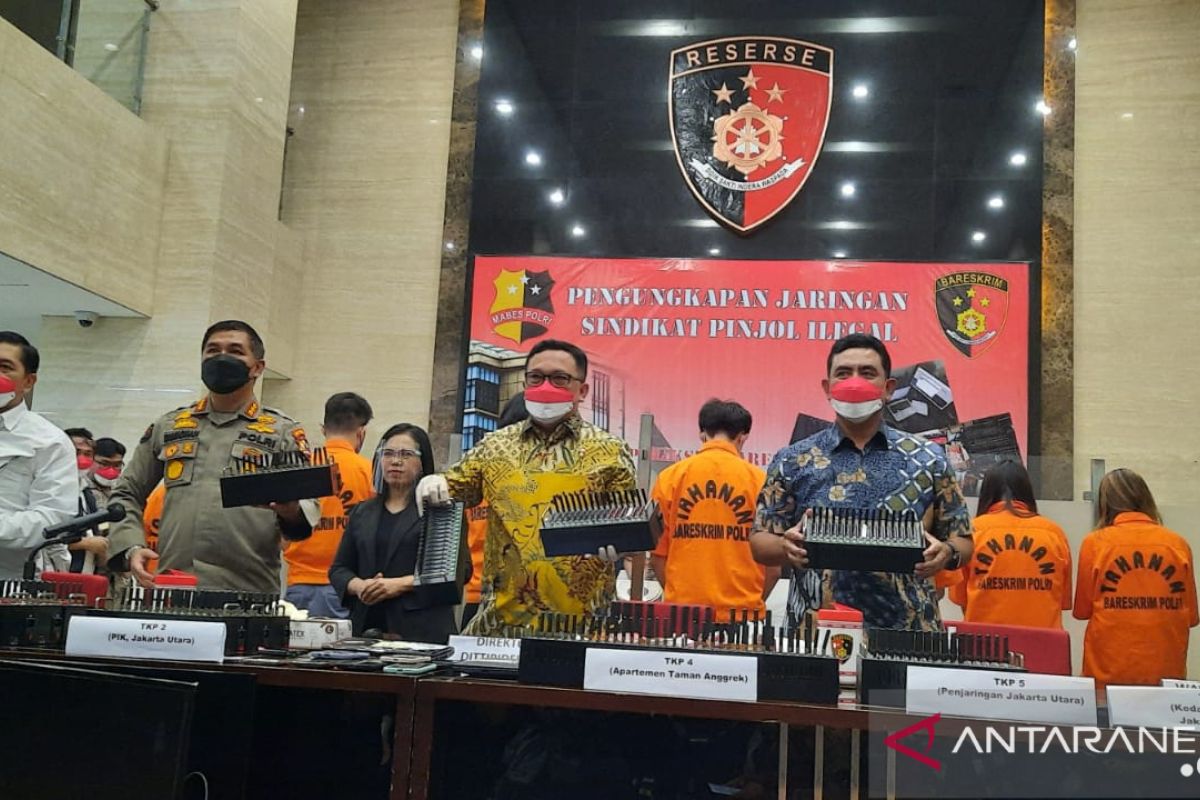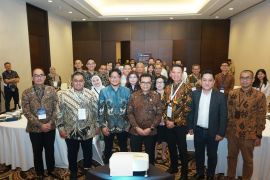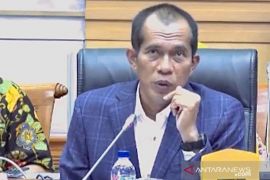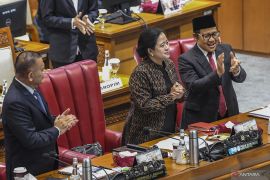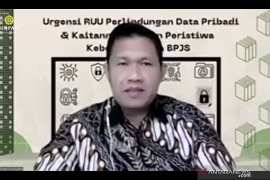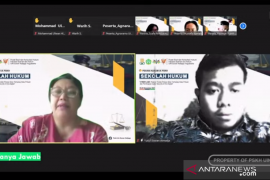That is how online lending companies often introduce themselves, offering hope to families struggling economically, particularly amid the COVID-19 pandemic, which has affected many industries and forced employees to seek alternatives to maintain their life despite a decline in income.
Unfortunately, as cyber security expert from Vaksincom, Alfons Tanujaya, points out, those ploys are bait for victims so they would easily provide their personal data while applying for the loan, presenting a valuable asset to illegal online lending syndicates to blackmail them if they are unable to pay back the loan.
According to Tanujaya, most illegal online lending syndicates employ two methods to pool personal data and engage with potential targets. The first method of blast message is done by purchasing dozens of new SIM cards that are used to send text messages offering loans to thousands of target numbers; the second method is to barter personal data among syndicates' telemarketing team, allowing them to access more users and offer new loans.
Easy access to phone numbers enables the syndicates to persistently send the text messages offering easy loans, and individuals who are struggling financially might be attracted by the SMS and apply for a loan, he says.
However, after the borrowers receive the money, they have to endure an astronomically high interest rate and intimidating messages asking for payment that intensify when the borrower shows even a slight indication of not being able to repay the loan and interest, he adds.
Root causes of the illegal online loan issue
Director of Jakarta Legal Aid Institute (LBH), Arif Maulana, opines that lax legal regulation protecting loan borrowers from online lending syndicate abuse has been exploited by the mushrooming online lending syndicates who offer competitive loan arrangements to victims.
Maulana underlines that the "easy" loan procedure without assessment of payment ability and lack of personal data protection further complicates the illegal online lending issue, dragging hundreds of borrowers into difficulties.
Articles 26 and 32 of the Electronic Information and Transactions Law (UU ITE) already provide a legal basis for victims of illegal online lending syndicates who see their personal data abused, the LBH head explains.
Article 26 dictates that the utilization of personal data information must be with the data subject’s consent and it allows data subjects to take legal action against parties who abuse their data, while Article 32 prohibits the dissemination of personal data or electronic information without permission, he adds.
Since 2018, the legal aid institute began to provide legal assistance, consultation, and advocacy to victims of illegal online lending syndicates that has seen an increasing trend, he says. The institute has noticed that law enforcement against personal data violations is often lax despite the existing legal basis, he adds.
The Financial Services Authority (OJK) Regulation No 77/POJK.01/2016 on IT-based Financial Lending Service has been weak in regulating the online lending system, he points out. The OJK regulation delegates many duties to online lending services, while the regulation on the OJK monitoring procedures for the online lending service is weak, he says.
“The legal basis provided by the UU ITE ought to be used for legal enforcement against personal data abuse and leak, including against illegal online lending syndicates,” Maulana states.
The parliament must swiftly pass the Personal Data Protection Bill, which is urgently needed by the public to provide a legal basis on personal data protection against potential misuse by criminal syndicates, including by illegal online lending companies, he emphasizes.
The absence of legal protection against personal data abuse, besides economically disadvantageous, violates citizens’ rights to personal protection, he adds.
Low public awareness exploited by syndicates
Besides legal loopholes and lax enforcement, low public awareness regarding personal data protection is also being exploited by the online lending syndicates that swiftly move to entrap more people.
A lecturer from the Department of Electrical Engineering and Information Technology of the Gadjah Mada University, Lukito Edi Nugroho, has asked the public to not publish their personal data on social media to prevent potential abuse by criminals, particularly illegal online lending syndicates.
When borrowing money becomes a necessity to fulfill family needs, Nugroho suggests examining the online lending company’s background and legal status with OJK before proceeding to study the loan’s terms and conditions to ensure that the arrangement is legal and within the scope of the law. The public must also be attentive to data access requested by the online lender application on a personal phone and be suspicious if the application requests excessive access on the phone, he adds.
Concurred with Nugroho, Tanujaya also suggests several measures to protect personal data.
Phone number identifier applications such as Truecaller allow unknown and unsaved phone numbers who try to call or send an SMS to the phone to be identified, he says. The application also allows users to block undesired phone numbers, including incoming calls offering loans, and tag a phone number as spam to warn other users.
Activating a one-time password-two factor authentication (OTP-TFA) also provides a second protection layer while accessing social media, as authorization from the OPT-TFA system is required every time login is made from a new device and thus, it prevents unauthorized access to social media accounts, he explains.
In conclusion, the authorities must quickly take action against illegal online lending syndicates that are profiting from unsuspecting victims, he says. Law enforcement, public awareness, and public vigilance to protect personal data are necessary to address this issue, he adds.
The government should also revise regulations regarding online lending systems to protect borrowers from abuse and educate the public on the risk of borrowing money from illegal online lenders, he says.
Related news: OJK warns Indonesians against illegal online lenders
Related news: Illegal online lenders function outside financial service system: OJK
Related news: Ministry blocks 151 unlicensed fintech P2P lenders
Editor: Rahmad Nasution
Copyright © ANTARA 2021
